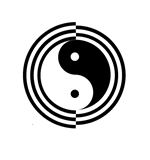Wing Chun Benefits
HEALTH BENEFITS OF WING CHUN
By Dr. Mark Curtis
Wing Chun practitioners often comment on how their particular training makes them feel really good. There seems to be an almost addictive nature to it and practitioners often say that it seems to almost infiltrate every part of their life. It seems quite clear that Wing Chun does have certain health benefits. These can be broadly divided into the physical and psychological.
I must start however, with a word of caution. Some martial arts try to make the body do almost unnatural things and emphasise actions in their training which can excessively load joints. This is a serious concern. In the long-term this can lead to osteoarthritis (wear and tear arthritis) which can cause much pain and suffering. There is no cure for osteoarthritis and the only real treatments currently are painkillers and joint replacement operations. I would urge all martial artists to look closely at the pros and cons of their training methods. Even just doing repetitive, powerful, full extensions of the elbow during punch training will eventually damage the joint.
There is also the issue of breaking lumps of wood, concrete etc. This always looks fantastic and you can only admire the focus and determination of the individuals who do it, but does this type of training make you any more likely to win a fight, and are you prepared to accept the joint damage which may result? There will always be much debate as to what are good and bad training methods but in my opinion a true martial art should not be damaging to the body and should be easily practised into old age. Wing Chun, in contrast to many arts, if practised correctly, is actually a soft, free flowing style, which deals more with deflecting an opponents energy rather than clashing with it head on.
In Wing Chun the training takes place at close range, the elbows mostly remain in a semi-flexed position even during striking. These factors help to keep joint loading to a minimum. Minor injuries do occur as with any contact activity, but the system on the whole it is not damaging to the body. The Wing Chun forms teach many things including good posture, flexibility, and coordination. The forms have an almost meditative quality and can really help to calm the mind. Chi sau in particular is a fascinating part of the system. It provides an excellent form of gentle controlled aerobic exercise which improves contact sensitivity and reflexes .
There is much emphasis in chi sau in learning to relax and conserving energy and players often find that they perform better if they just switch their mind off. This release from conscious thought can result in the whole training experience being incredibly relaxing and refreshing. I believe that this stress relieving quality is probably the major health benefit of Wing Chun. The practice of Wing Chun Kung Fu can have profound psychological effects. Most importantly I think, it can provide an enormously positive focus in peoples lives.
All too often in my work as a GP I see patients who lack such a focus, often they suffer from low self esteem, depression and anxiety. There is now evidence that physical exercise can make you less likely to suffer from depression. The close range nature of Wing Chun training helps to break down social barriers between people and training partners often become trusted friends. In order to learn much of the training is co-operative and it is not necessary to hurt your partner. Chi sau is such a dynamic drill that your perceived advantage can quickly be turned against you. All of these factors help us to realise the importance of controlling our egos.
There is obviously a philosophical side to kung fu which I believe can subconsciously affect the way you approach life. Many parallels can be drawn between the fighting concepts and strategies and the way we deal with problems in real life. The centreline theory for example could be interpreted as maintaining a balance in your life. For myself I often find that keeping things in life simple, direct and efficient works very well. I find that the complexity of modern life can frequently increase stress levels, which puts us at risk of mental and physical ill health.
There is much to be said for having a simple life. Wing Chun constantly reminds me of the value of simplicity. I recently found a wonderfully profound old Taoist saying: ” Lessons learnt by the body educate the mind.” This for me sums up the whole philosophical side to kung fu but in truth it is up to the individual to discover how it can change his or her life in the course of time. Kung fu really can be a “soul food”.
Taken from the book Simple Thinking Intelligent Fighters by Alan Gibson
